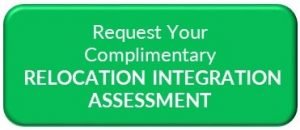Why Relocation Management Companies Have to Take Data Privacy and Security Seriously
In today’s digital age, maintaining data privacy is essential as it goes beyond protecting identities to safeguarding personal information that can significantly impact individuals’ lives. Consumers seek convenience and speed, particularly in global travel, yet these benefits often come with a trade-off of privacy and ethical data handling. Companies offering features like biometric logins and tailored marketing campaigns face unique challenges that require thorough evaluation. Unfortunately, risk assessments are often overlooked when responding to customer requests quickly.
As technology advances, the need for data privacy and security in the global mobility industry becomes more pressing. Relocation management companies, in particular, must prioritize protecting personal information to maintain trust with their clients. With the increasing use of biometric data and personalized services, the risks of data breaches and misuse are higher than ever.
Businesses in the global mobility industry must conduct thorough risk assessments and implement robust security measures to safeguard sensitive data. Ignoring these risks in favor of meeting client demands quickly can lead to severe consequences, including legal liabilities and reputational damage.
By taking data privacy and security seriously, relocation management companies can protect clients’ information and build a reputation as trustworthy partners in the global mobility industry. Prioritizing data privacy is a legal requirement and a strategic decision that can set businesses apart in a competitive market.
Key Elements of Data Protection
The first steps in creating an effective data management system involve sorting and organizing data. This includes identifying the types of data needed, understanding how data is used internally, evaluating how data is shared externally, and determining where data should be stored, a process known as data mapping. Companies must also navigate through regulations by identifying data protection requirements, often requiring the expertise of a data protection officer or legal advisor.
Incorporating privacy into a company’s design strategy requires careful integration into systems and processes and a deep understanding of data collection and privacy laws. Effective data management includes clear privacy policies, limited data collection for specific purposes, secure data handling, timely data deletion, and quick responses to data access and deletion requests.
Ongoing training and supervision are necessary for proper data management. Organizations should offer training sessions, anonymous reporting options, surveys, audits, and incentive programs to educate employees and supply chain partners about data privacy and security. Data privacy constantly changes and requires continuous enhancements and monitoring to comply with relevant laws and regulations.
The global mobility sector is evolving in its approach to handling sensitive data, focusing on privacy-oriented strategies and robust data protection measures. By adhering to regulations and implementing these practices, organizations can enhance trust with transferees and clients and improve the reliability and quality of their services throughout the relocation process.
Your Data Is Safe with GMS
Global Mobility Solutions (GMS) is one of the few international relocation companies with SOC 2 certification. At GMS, we take data privacy and security seriously. Our SOC 2 certification demonstrates our commitment to protecting your sensitive information throughout the relocation process. We understand the importance of maintaining the confidentiality and integrity of your data, and we have implemented stringent measures to ensure that your information is safe with us. By choosing GMS for your relocation management program, you can trust that your data is in good hands. Contact us today to learn more about our data protection practices and how we can help you with your relocation needs.
Why Relocation Management Companies Have to Take Data Privacy and Security Seriously
In today’s digital age, maintaining data privacy is essential as it goes beyond protecting identities to safeguarding personal information that can significantly impact individuals’ lives. Consumers seek convenience and speed, particularly in global travel, yet these benefits often come with a trade-off of privacy and ethical data handling. Companies offering features like biometric logins and tailored marketing campaigns face unique challenges that require thorough evaluation. Unfortunately, risk assessments are often overlooked when responding to customer requests quickly.
As technology advances, the need for data privacy and security in the global mobility industry becomes more pressing. Relocation management companies, in particular, must prioritize protecting personal information to maintain trust with their clients. With the increasing use of biometric data and personalized services, the risks of data breaches and misuse are higher than ever.
Businesses in the global mobility industry must conduct thorough risk assessments and implement robust security measures to safeguard sensitive data. Ignoring these risks in favor of meeting client demands quickly can lead to severe consequences, including legal liabilities and reputational damage.
By taking data privacy and security seriously, relocation management companies can protect clients’ information and build a reputation as trustworthy partners in the global mobility industry. Prioritizing data privacy is a legal requirement and a strategic decision that can set businesses apart in a competitive market.
Key Elements of Data Protection
The first steps in creating an effective data management system involve sorting and organizing data. This includes identifying the types of data needed, understanding how data is used internally, evaluating how data is shared externally, and determining where data should be stored, a process known as data mapping. Companies must also navigate through regulations by identifying data protection requirements, often requiring the expertise of a data protection officer or legal advisor.
Incorporating privacy into a company’s design strategy requires careful integration into systems and processes and a deep understanding of data collection and privacy laws. Effective data management includes clear privacy policies, limited data collection for specific purposes, secure data handling, timely data deletion, and quick responses to data access and deletion requests.
Ongoing training and supervision are necessary for proper data management. Organizations should offer training sessions, anonymous reporting options, surveys, audits, and incentive programs to educate employees and supply chain partners about data privacy and security. Data privacy constantly changes and requires continuous enhancements and monitoring to comply with relevant laws and regulations.
The global mobility sector is evolving in its approach to handling sensitive data, focusing on privacy-oriented strategies and robust data protection measures. By adhering to regulations and implementing these practices, organizations can enhance trust with transferees and clients and improve the reliability and quality of their services throughout the relocation process.
Your Data Is Safe with GMS
Global Mobility Solutions (GMS) is one of the few international relocation companies with SOC 2 certification. At GMS, we take data privacy and security seriously. Our SOC 2 certification demonstrates our commitment to protecting your sensitive information throughout the relocation process. We understand the importance of maintaining the confidentiality and integrity of your data, and we have implemented stringent measures to ensure that your information is safe with us. By choosing GMS for your relocation management program, you can trust that your data is in good hands. Contact us today to learn more about our data protection practices and how we can help you with your relocation needs.











